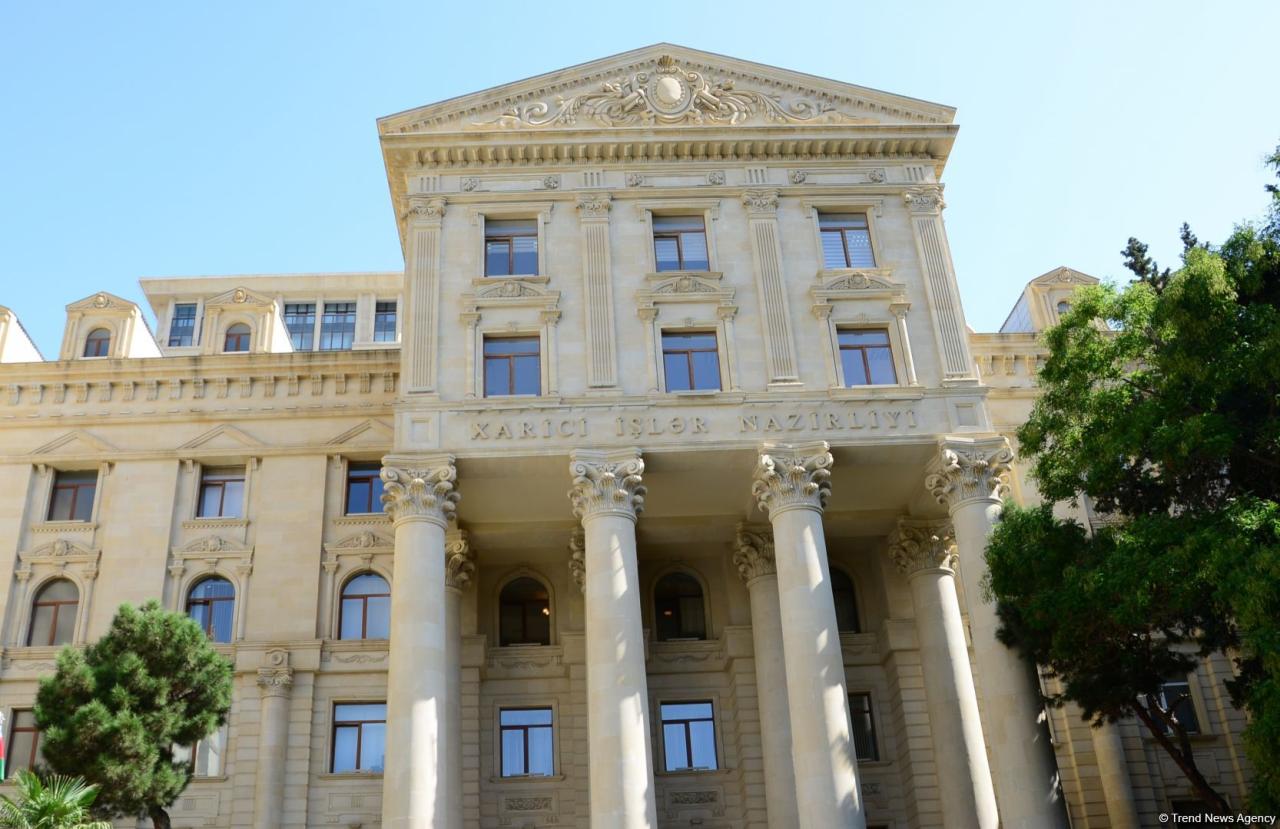Baku: Canadian FM’s unilateral stance on Karabakh peace deal regretful

By Vafa Ismayilova
The Azerbaijani Foreign Ministry has expressed regret over the Canadian foreign minister's unilateral pro-Armenian position on the cessation of military operations between Armenia and Azerbaijan.
“The one-sided statement made by the Canadian foreign minister on the cessation of military operations between Armenia and Azerbaijan, in which pro-Armenian sentiments are openly expressed, is regrettable,” ministry said on its website on November 12.
The ministry later added: “It seems that the Canadian foreign minister, who failed to make any statement condemning the occupation of Azerbaijani territories for nearly 30 years and the violation of human rights of hundreds of thousands of Azerbaijanis, and supporting the implementation of the UN Security Council’s relevant resolutions, started to engage in the settlement [of the Nagorno-Karabakh conflict] now.”
No state, particularly those located far from this territory cannot be more interested in regional peace and security than the regional countries, the ministry said.
“If Canada is really interested in ensuring lasting regional peace, then it should behave in line with principles of international law and the UN Security Council resolutions. The opposite of this is nothing than undermining a political solution to the conflict and the establishment of regional peace,” the statement said.
On November 10, 2020, Azerbaijani President Ilham Aliyev, Armenian Prime Minister Nikol Pashinyan and Russian President Vladimir Putin signed a joint declaration to stop hostilities between Armenia and Azerbaijan.
Under the deal, Russian peacekeepers are deployed in the region to patrol frontlines. Turkey also takes part in the peacekeeping process. Turkey and Russia signed a deal on creating a Turkish-Russian joint ceasefire monitoring centre.
The clashes between Armenia and Azerbaijan resumed after Armenia launched large-scale attacks on Azerbaijani forces and civilians on September 27. Five Azerbaijani civilians were killed on the first day of the Armenian attacks. Ninety-three Azerbaijani civilians were killed in Armenian's indiscriminate attacks on Azerbaijani civilians. Azerbaijan launched counter-offensive operations that ended in the liberation of over 300 settlements, villages. Azerbaijan also liberated five city centres and the historic Shusha city.
The 44 days of war ended with the Russian-brokered peace deal signed on November 9 by the Azerbaijani, Russian and Armenian leaders. The peace agreement entered force on November 10 and envisages the de-occupation of Azerbaijan’s Kalbajar, Aghdam and Lachin regions by December 1 as well as the return of Azerbaijani IDPs to Azerbaijan’s Nagorno-Karabakh and the seven adjacent regions under the control of the United Nations High Commissioner for Refugees.
The peace agreement ended the 30-years-old conflict between Baku and Yerevan over Azerbaijan’s Nagorno-Karabakh region that along with the seven adjacent districts came under the occupation of Armenian armed forces in the war in the early 1990s. For about three decades, Armenia failed to implement the UN Security Council resolutions (822, 853, 874 and 884) demanding the withdrawal of its troops, which was the main obstacle to the resolution of the conflict.
The OSCE Minsk Group co-chaired by the United States, Russia and France had been mediating the Armenian-Azerbaijani conflict since the signing of the volatile cease-fire agreement in 1994. The Minsk Group’s efforts resulted in no progress as Armenia refused to abide by the UN Security Council resolutions.
--
Follow us on Twitter @AzerNewsAz
Here we are to serve you with news right now. It does not cost much, but worth your attention.
Choose to support open, independent, quality journalism and subscribe on a monthly basis.
By subscribing to our online newspaper, you can have full digital access to all news, analysis, and much more.
You can also follow AzerNEWS on Twitter @AzerNewsAz or Facebook @AzerNewsNewspaper
Thank you!
